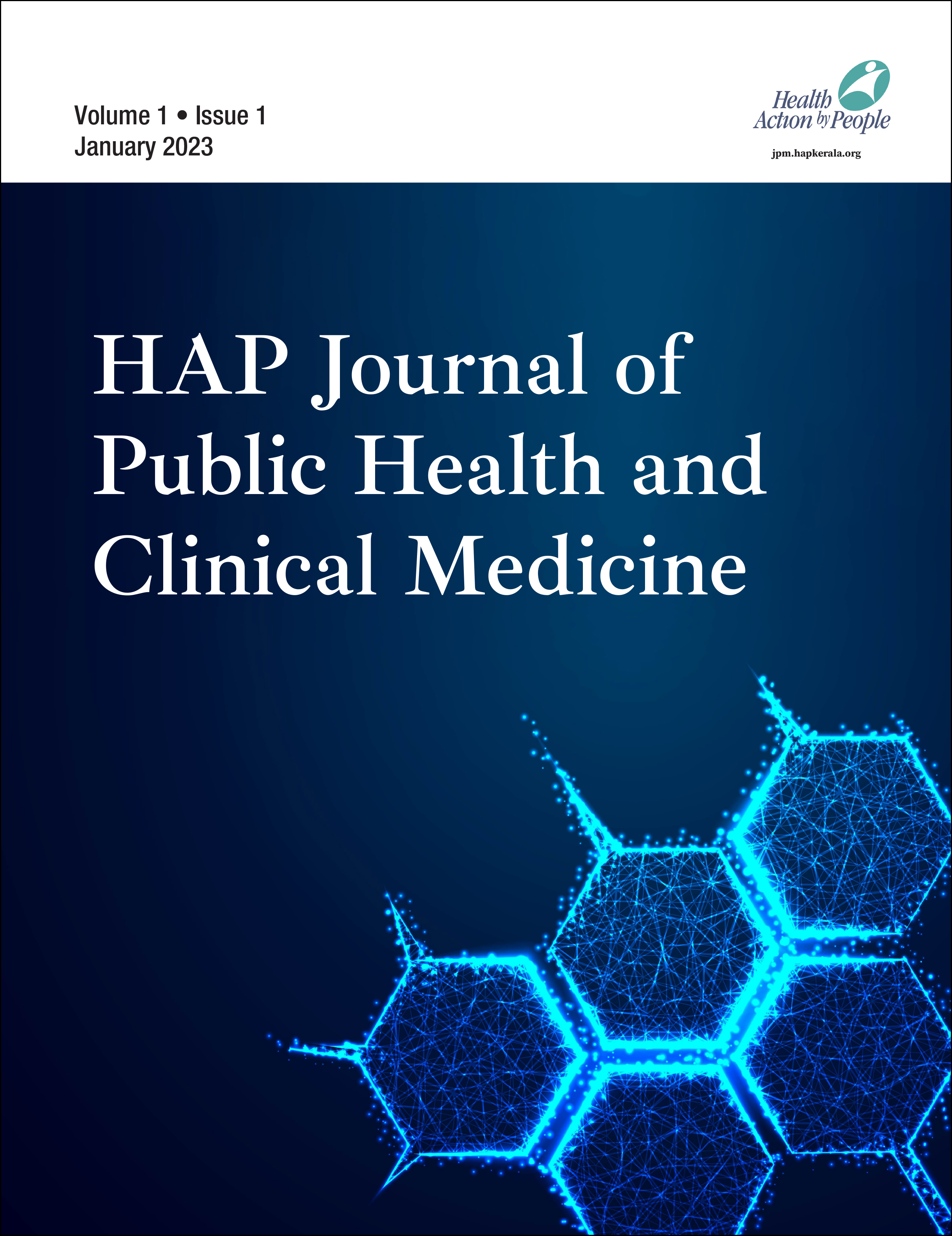
1Hamad Medical Corporation, Doha, Qatar
2MVR Cancer Centre & Research Institute, Kozhikode, Kerala, India
3Sree Chitra Tirunal Institute for Medical Sciences and Technology, Thiruvananthapuram, Kerala, India
Creative Commons Non Commercial CC BY-NC: This article is distributed under the terms of the Creative Commons Attribution-NonCommercial 4.0 License (http://www.creativecommons.org/licenses/by-nc/4.0/) which permits non-Commercial use, reproduction and distribution of the work without further permission provided the original work is attributed
Background: Frequency of type 2 diabetes is very much elevated in Kerala in comparison with other states. Essential and effectual regulation of the illness could avert and thus delay complications. Good dietary practice is an important component in diabetes management.
This study aims to assess the regimen applications and related elements among patients with type 2 diabetes in Malappuram district of Kerala.
Methods: A cross-sectional survey was done among 304 patients with type 2 diabetes selected by cluster sampling from randomly chosen electoral divisions of Malappuram block panchayat of Kerala. A systematic interview was performed in order to evaluate the frequency and prevalence of quality regimen practices among patients distressed with type 2 diabetes and factors associated with it. Good dietary practice was a single composite outcome created out of 5 independent variables.
Results: The prevalence of good dietary practice among patients with type 2 diabetes was 20.4%. Elements like self-announced hardness in following a healthy balanced regimen (adjusted odds ratio [AOR]: 0.19 [0.09-0.41]), physical help from a family member to follow good dietary practices (AOR: 2.89 [1.24-6.75]), companionship of peer or family member in practicing good dietary practice (AOR: 2.23 [1.07-4.66]), and regular blood sugar monitoring (AOR: 2.74 [1.27-5.94]) were remarkably linked with quality regimen practices.
Conclusion: Prevalence of good dietary practices within patients with type 2 diabetes was found to be very low. Interventions for improvement in good dietary practices should include methods like regime counselling which can actually guide the patients to outgrow their recognized health issues. During difficult times like these, most of the patients desire great family assistance and help from others who would like to conduct good regimen practices with the patients.
Dietary practices, type 2 diabetes, rural Kerala, companionship
1. International Diabetes Federation. IDF Diabetes Atlas. 8th ed. International Diabetes Federation, 2017. http://www.diabetesatlas.org. Accessed September 24, 2022.
2. International Diabetes Federation. Global Guidelines for Type 2 Diabetes, 2012:38. http://www.idf.org/sites/default/files/IDF-Guideline-for-Type-2-Diabetes.pdf. Accessed October 23, 2013.
3. Chawla R, Madhu SV, Makkar BM, Ghosh S, Saboo B, Kalra S, RSSDI-ESI Consensus Group. RSSDI-ESI clinical practice recommendations for the management of type 2 diabetes mellitus 2020. Indian J Endocrinol Metabol. 2020;24(1): 1-122. doi:10.4103/ijem.IJEM_225_20.
4. Anjana RM, Pradeepa R, Deepa M, et al. The Indian Council of Medical Research-India Diabetes (ICMR-INDIAB) study: methodological details. J Diabetes Sci Tech. 2011;5(4):906-914. doi:10.1177/193229681100500413.
5. American Diabetes Association. Standards of medical care in diabetes—2007. Diabetes Care. 2007;30:S4-S41.
6. World Health Organization. Global Action Plan for the Prevention and Control of NCDs 2013–2020. World Health Organization; 2013. https://www.who.int/news-room/fact-sheets/detail/ healthy-diet. Accessed September 24, 2022.
7. Bhatt M, Nahari A, Wang PW, et al. The quality of clinical practice guidelines for management of pediatric type 2 diabetes mellitus: a systematic review using the AGREE II instrument. Syst Rev. 2018;7(1):193. doi:10.1186/s13643-018-0843-1.
8. Shah A, Kanaya AM. Diabetes and associated complications in the South Asian population. Curr Cardiol Rep. 2014;16(5):476. doi:10.1007/s11886-014-0476-5.
9. Prenissl J, Jaacks LM, Mohan V, et al. Variation in health system performance for managing diabetes among states in India: a cross-sectional study of individuals aged 15 to 49 years. BMC Med. 2019;17(1):92. doi:10.1186/s12916-019-1325-6.
10. Benoit SR, Fleming R, Philis-Tsimikas A, et al. Predictors of glycemic control among patients with Type 2 diabetes: a longitudinal study. BMC Public Health. 2005;5:36. https://doi.org/10.1186/1471-2458-5-36
11. Wang LL, Wang Q, Hong Y, et al. The effect of low-carbohydrate diet on glycemic control in patients with type 2 diabetes mellitus. Nutrients. 2018;10(6):661. doi:10.3390/nu10060661.
12. Jung CH, Choi KM. Impact of high-carbohydrate diet on metabolic parameters in patients with type 2 diabetes. Nutrients. 2017;9(4):322. doi:10.3390/nu9040322.
13. Unnikrishnan R, Anjana RM, Deepa M, et al, ICMR–INDIAB Collaborative Study Group. Glycemic control among individuals with self-reported diabetes in India--the ICMR-INDIAB Study. Diabetes Technol Ther. 2014;16(9):596-603. doi:10.1089/dia.2014.0018.
14. United Nations Development Program (UNDP). Human Development Report. March 2011. https://www.undp.org/publications/hdr-2011. Accessed September 24, 2022.
15. Nelson KM, Reiber G, Boyco EJ, NHANESIII. Diet and exercise among adults with type 2 diabetes: findings from the third national health and nutrition examination survey (NHANES III). Diabetes Care. 2002;25(10):1722-1728.
16. Gopichandran V, Lyndon S, Angel MK, et al. Diabetes self-care activities: a community-based survey in urban southern India. Natl Med J India. 2012;25(1):14-17.
17. Thankappan KR, Shah B, Mathur P, et al. Risk factor profile for chronic non-communicable diseases: results of a community-based study in Kerala, India. Indian J Med Res. 2010;131:53-63.
18. Tan BL, Norhaizan ME, Liew WP. Nutrients and oxidative stress: friend or foe Oxid Med Cell Longev. 2018;9719584. doi:10.1155/2018/9719584.
19. Emadian A, England CY, Thompson JL. Dietary intake and factors influencing eating behaviours in overweight and obese South Asian men living in the UK: mixed method study. BMJ Open. 2017;7(7):e016919. doi:10.1136/bmjopen-2017-016919.
20. Chew BH, Hassan NH, Sherina MS. Determinants of medication adherence among adults with type 2 diabetes mellitus in three Malaysian public health clinics: a cross-sectional study. Patient Prefer Adherence. 2015;9:639-648. doi:10.2147/PPA.S81612.
21. Gunggu A, Thon CC, Whye Lian C. Predictors of diabetes self-management among type 2 diabetes patients. J Diabetes Res. 2016;2016:9158943. doi:10.1155/2016/9158943.
22. Correia JC, Lachat S, Lagger G, Chappuis F, Golay A, Beran D; COHESION Project. Interventions targeting hypertension and diabetes mellitus at community and primary healthcare level in low- and middle-income countries: a scoping review. BMC Public Health. 2019;19(1):1542. doi:10.1186/s12889-019-7842-6.
23. Chandrika K, Das BN, Syed S, Challa S. Diabetes self-care activities: a community-based survey in an urban slum in Hyderabad, India. Indian J Commun Med. 2020;45(3):307-310. doi:10.4103/ijcm.IJCM_236_19.
24. Yang G, Leventer S, Leong J, Lembrikova K, Wilson C, Markell M. Nutritional literacy and diet quality in inner-city patients with chronic kidney disease (CKD) (P04-109-19). Curr Dev Nutr. 2019;3(Suppl 1):nzz051.P04-109-19. doi:10.1093/cdn/nzz051.P04-109-19.